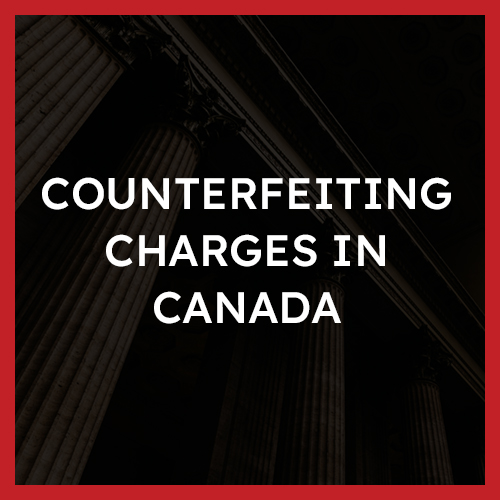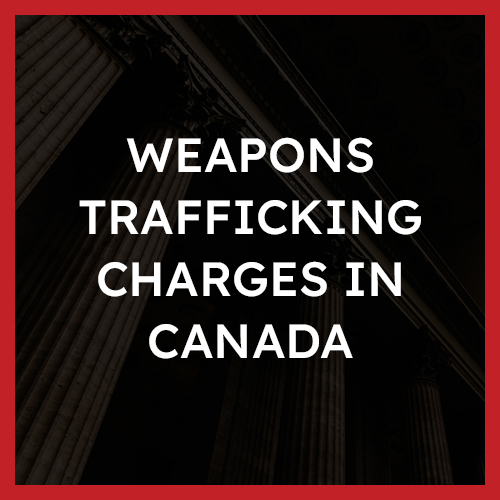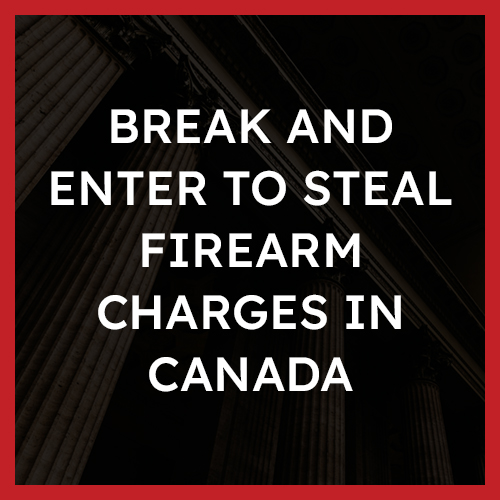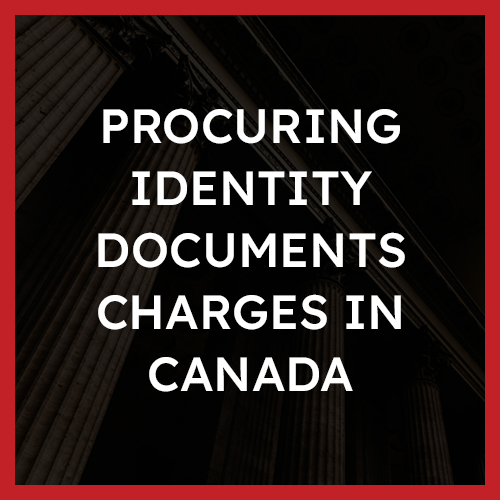Counterfeiting (s.449, s.450, and s.452) Charges in Canada: Offences, Defences, Punishments
What is counterfeiting?
 Counterfeiting is covered under s.448, s.449, s.450, and s.452 of the Criminal Code of Canada.
Counterfeiting is covered under s.448, s.449, s.450, and s.452 of the Criminal Code of Canada.
Counterfeiting is defined extensively in these sections and refers to the making, possession, or uttering of counterfeit money. Uttering of counterfeit money includes selling, paying, tendering, and putting off a counterfeit.
Counterfeiting is a straight indictable offence in Canada. This means that the Crown can only proceed by indictment.
Examples
Common examples of counterfeiting include the following:
- attempting to make an identical replica of genuine money;
- possessing an identical replica of genuine money;
- using counterfeit money to purchase an item from a store; and
- using false cheques to obtain cash.
Defences
The defences available to a charge of counterfeiting are entirely dependent on the facts of the case.
However, some common defences to counterfeiting include the following:
- Lack of knowledge that the items were counterfeit;
- The Crown did not sufficiently prove the character of the counterfeit money
- A breach of Charter rights
Punishment
Counterfeiting is a straight indictable offence with a maximum term of imprisonment of fourteen years.
As such, the possible sentences available include a suspended sentence, fine, fine and probation, jail and probation, or jail and fine. Further, due to the possible maximum sentence, neither a discharge nor conditional sentence order is available as sentences.
Overview of the Offence
The relevant terms and definitions for the offence of “counterfeiting” are outlined in s.448 of the Criminal Code:
448 In this Part,
counterfeit money includes
(a) a false coin or false paper money that resembles or is apparently intended to resemble or pass for a current coin or current paper money,
(b) a forged bank-note or forged blank bank-note, whether complete or incomplete,
(c) a genuine coin or genuine paper money that is prepared or altered to resemble or pass for a current coin or current paper money of a higher denomination,
(d) a current coin from which the milling is removed by filing or cutting the edges and on which new milling is made to restore its appearance,
(e) a coin cased with gold, silver or nickel, as the case may be, that is intended to resemble or pass for a current gold, silver or nickel coin, and
(f) a coin or a piece of metal or mixed metals that is washed or coloured by any means with a wash or material capable of producing the appearance of gold, silver or nickel and that is intended to resemble or pass for a current gold, silver or nickel coin; (monnaie contrefaite)
counterfeit token of value means a counterfeit excise stamp, postage stamp or other evidence of value, by whatever technical, trivial or deceptive designation it may be described, and includes genuine coin or paper money that has no value as money; (symbole de valeur contrefait)
current means lawfully current in Canada or elsewhere by virtue of a law, proclamation or regulation in force in Canada or elsewhere as the case may be; (courant)
utter includes sell, pay, tender and put off. (mettre en circulation)
The Crown must prove the actus reus (the “guilty act”) and the mens rea (the “guilty mind”) of a counterfeit money charge beyond a reasonable doubt to ground a conviction.
The actus reus of the offence will depend on whether the offender is charged with “making”, being in “possession”, or “uttering” counterfeit money.
The offence of “making” counterfeit money is defined and punished under s.449 of the Criminal Code. Accordingly, the actus reus of “making” counterfeit money is established when the offender either “makes” or “begins to make” counterfeit. As such, the counterfeit money need not actually be made for the offence to be established.
The offence of “possession” of counterfeit money is defined under s.450 of the Criminal Code. Accordingly, the actus reus is established when the offender, without lawful justification or excuse:
(a) buys, receives or offers to buy or receive counterfeit money;
(b) has in their custody or possession counterfeit money; or
(c) introduces counterfeit money into Canada.
The offence of “uttering” counterfeit money is defined and punished under s.452 of the Criminal Code. Accordingly, the actus reus is established when the offender, without lawful excuse or justification:
(a) utters or offers to utter counterfeit money or uses counterfeit money as if it were genuine, or
(b) exports, sends or takes counterfeit money out of Canada.
As defined in s.448, utters in this context include selling, pay, tender, and put off.
The mens rea for s.449 simply requires that the offender had the intent to make counterfeit money.
The mens rea for s.450 and s.452 requires that the offender had the intent to commit the offence and that the offender, at the time of the offence, knew of the “character” of the counterfeit money.
The Guilty Act (Actus Reus)
The actus reus for counterfeiting requires that the Crown must prove beyond a reasonable doubt that:
Section 449 – “making”
- The offender “makes” or “begins to make” counterfeit money.
Section 450 – “possession”
- The offender buys, receives or offers to buy or receive counterfeit money;
- The offender has in their custody or possession counterfeit money; or
- The offender introduces counterfeit money into Canada.
Section 452 – “uttering”
- The offender utters or offers to utter counterfeit money or uses counterfeit money as if it were genuine, or
- The offender exports, sends or takes counterfeit money out of Canada.
The Guilty Mind (Mens Rea)
The mens rea for counterfeiting requires that the Crown must prove beyond a reasonable doubt that:
Section 449 – “making”
- The offender intended to make or begin to make counterfeit money.
Section 450 – “possession”
- The offender had the intent to commit the offence; and
- The offender knew the “character” of the counterfeit money.
Section 452 – “uttering”
- The offender had the intent to commit the offence; and
- The offender knew the “character” of the counterfeit money.
Counterfeiting Defences
How to beat a Counterfeiting Charge
The presence or absence of a defence to defamatory libel will depend on the specific circumstances of your case. However, the following are some common defences that may be used when fighting a counterfeiting charge.
Lack of knowledge
Sections 450 and 452 of the Criminal Code require that the Crown prove, beyond a reasonable doubt, that the offender had actual knowledge of the character of the counterfeit money. It is no longer the law that the Crown simply proves that the offender possessed or uttered the counterfeit money: R v Freng, 1993 CanLII 913 (BCCA).
The Crown did not sufficiently prove the character of the counterfeit money
Section 461 of the Criminal Code outlines several prerequisites the Crown is required to follow when proving the “nature” of the counterfeit money. This includes tendering a certificate of the examiner and a notice of the Crown’s intention to produce the certificate at trial. A failure to follow these requirements may result in the Crown failing to prove the nature of the money as counterfeit.
Breach of Charter rights
The Crown must prove the elements of counterfeiting beyond a reasonable doubt. The Crown will likely attempt to prove these elements using evidence obtained by police during their investigation. However, this evidence must be obtained by police in a manner that complies with the Canadian Charter of Rights and Freedoms (the “Charter”).
The Charter affords every person a number of legal rights, such as the right to be secure against unreasonable search and seizure, the right not to be arbitrarily detained or imprisoned, the right to be informed of the reasons of their detention or arrest, and the right to counsel without counsel.
If the police obtain any evidence in violation of your Charter rights, then a court may exclude this evidence from being used by the Crown at the trial depending on the severity of the Charter violation.
Counterfeiting Punishments
According s.498 of the Criminal Code:
Every one who makes or begins to make counterfeit money is guilty of an indictable offence and liable to imprisonment for a term not exceeding fourteen years.
According to s.450 of the Criminal Code:
Every person is guilty of an indictable offence and liable to imprisonment for a term of not more than 14 years who, without lawful justification or excuse,
(a) buys, receives or offers to buy or receive counterfeit money;
(b) has in their custody or possession counterfeit money; or
(c) introduces counterfeit money into Canada.
According to s.452 of the Criminal Code:
Every person is guilty of an indictable offence and liable to imprisonment for a term of not more than 14 years who, without lawful justification or excuse,
(a) utters or offers to utter counterfeit money or uses counterfeit money as if it were genuine, or
(b) exports, sends or takes counterfeit money out of Canada.
The sentence you receive for either ss.449, 450, or 452 will depend heavily on the circumstances of your case. Further, ss.449, 450, and 452 are “straight indictable” offences. This means that the Crown cannot proceed by way of summary conviction and the offender must be punished by indictment.
As such, an offender punished under ss.449, 450, or 452 will have the following options available to them upon sentence: suspended sentence, fine, fine and probation, jail and probation, or jail and fine.
A maximum sentence of fourteen years of jail time is possible for offenders convicted under ss.449, 450, or 452. As such, neither a discharge nor conditional sentence order is available upon a conviction.
Frequently Asked Questions
What is an example of counterfeiting?
A common example of counterfeiting includes “a person attempting to pass as genuine a near-perfect replica of current Canadian bill”: R v Hartle, 2018 SKPC 62.
Is counterfeiting a serious crime?
Yes, counterfeiting is a serious criminal offence and is a straight indictable criminal offence punishable by up to 14 years imprisonment. Frequently, those found guilty of a counterfeiting offence are given custodial sentences due to the serious nature of the offence.
A counterfeiting conviction may also have severe employment and reputation consequences. A lifelong criminal record following a counterfeiting conviction will show current and future employers that you committed a property or financial offence.
A counterfeiting conviction could also have severe immigration consequences for non-citizens. Under s. 36 of the Immigration and Refugee Protection Act, a person convicted of counterfeiting is inadmissible to Canada due to being convicted of a criminal offence meeting the requirements of serious criminality.
Can you go to jail for counterfeiting?
Yes, offenders convicted of counterfeiting often receive jail time sentences. Further, an offender may receive up to fourteen years imprisonment upon conviction.
Published Decisions
R v Robinson, 1973 CanLII 22 (SCC), [1974] SCR 573
The offender had in his possession a number of unique coins resembling coins from the United States. The Supreme Court of Canada agreed with the Ontario Court of Appeal that the offender failed to demonstrate lawful justification or excuse that he was in possession of counterfeit coins and that holding onto or selling these coins for “numismatic” value does not negate the offence of possessing counterfeit money.
You can read the full decision here.
R v Freng, 1993 CanLII 913 (BCCA)
The offender went on a trip with his friend to Vernon, British Columbia, and made a purchase with what appeared to be lawful money from the United States. The offender was unaware that his friend’s money was counterfeit. The British Columbia Court of Appeal overturned his conviction and ruled that the Crown is required to knowledge that the offender had some knowledge of the character of the counterfeit money.
You can read the full decision here.
R v Duane, 1984 ABCA 115 (CanLII)
The offender held onto counterfeit money for a friend. The offender decided to destroy the counterfeit money but the police arrived before the counterfeit could be destroyed. The Albert Court of Appeal ruled that possession of counterfeit money, even where the offender has no intention to use the counterfeit money, still establishes the offence. The offender was then convicted of possession of counterfeit money.
You can read the full decision here.
About The Author
Ask A Question
We endeavor to respond to questions within 24 hours. If your matter is urgent, please call our office or submit a request for a free consultation.







